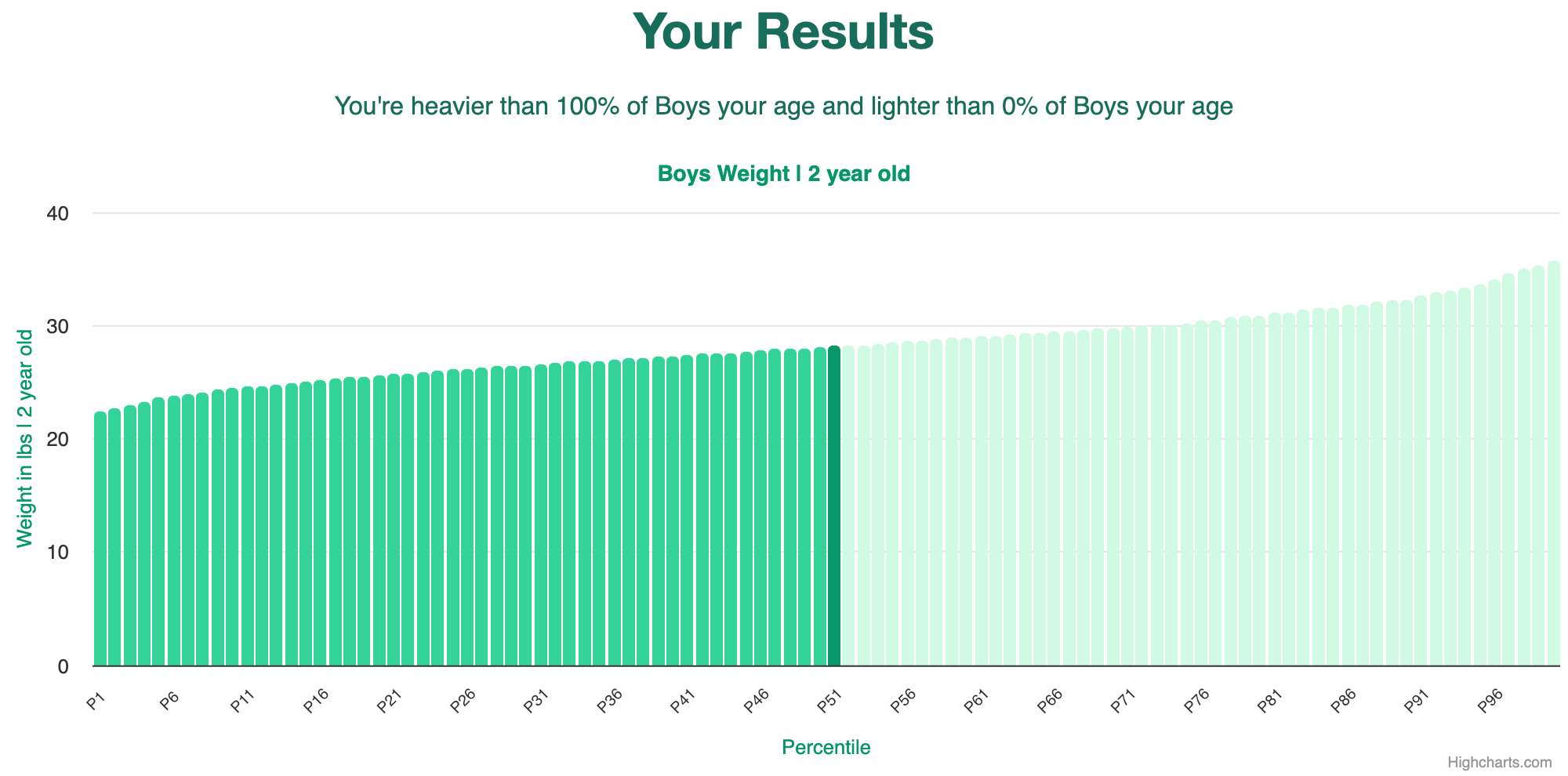Boys Weight chart in kgs for Toddlers 2 year old

General Summary: 2 year old boys weight
In most cases, weight measurements for 2 year old boys will be in the range between 10 and 15 kgs. The average weight for 2 year old boys is 12 kgs, according to the CDC and anonymized data from users.
All Results
Enter your weight measurements above to see how they compare
So far, we have recorded [0] weight measurements for 2-year-old boys on LifeMeasure!
(chart updates daily)
See more ages